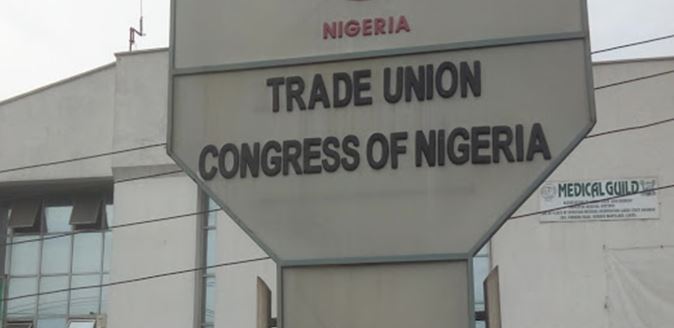• Uneasy calm in Bayelsa
From Adanna Nnamani, Abuja and Femi Folaranmi, Yenagoa
The Trade Union Congress (TUC) has warned that its members in states that have failed to implement the new minimum wage and its consequential adjustments could withdraw their services indefinitely.
This warning followed a meeting of the TUC’s National Executive Council (NEC) yesterday in Abuja, where concerns were raised about the slow pace of implementation in some states.
Its president noted that while some states made progress, with up to 80 percent of the necessary adjustment processes already in place, others remained significantly behind.
He specifically called out Zamfara and Cross River states for their lack of action, noting that workers in Cross River were already engaged in a two-day warning strike and that if the state government did not respond, the strike could escalate to an indefinite action.
Osifo stressed that the minimum wage issue was beyond the simple announcement of wage figures such as N30,000, N80,000, or N90,000. The core issue, he explained, the implementation of the necessary adjustments to align wages with the new national standard. He urged state governments to prioritise the welfare of workers and engage in meaningful dialogue with labour unions to resolve the matter.
“There are some states where there is no conversation whatsoever about the implementation of the new minimum wage. We call on these states to come to the table and discuss how to implement the new national minimum wage, along with the consequential adjustments, so that workers can start benefiting.”
In addition to concerns about the minimum wage, Osifo also addressed the issue of rising taxes, warning that increasing the tax burden on citizens could lead to tax evasion. He urged the government authorities to reconsider any proposed tax hike, particularly at a time when many workers are already struggling with the delayed implementation of wage adjustments.
Osifo also referenced the recent GDP report for the third quarter, noting that while the economy was growing, the service sector, especially banking, played a dominant role in that growth. He called on the government to focus on encouraging investment in other key sectors, including agriculture, manufacturing, and real estate, which he argued could create more jobs and reduce unemployment.
“Government should encourage these banks to lend more to the real sector of the economy because it is that sector that hires a lot of Nigerians, and we want Nigerians to be engaged. So, we hereby call on the government, through the CBN, to come up with robust policies that will encourage the banking sector to lend much more to the real sector of the economy, so that more jobs could be created,” Osifo added.
Meanwhile, there is uneasy calm in Bayelsa State over the N80,000 minimum wage announced by Governor Douye Diri.
Grumbling from workers had greeted the disclosure of the consequential adjustment, which many faulted as flawed because it did not reflect civil servants’ expectations.
Investigations revealed that the labour unions uncomfortable with the implementation arranged a meeting with the deputy- governor, Senator Lawrence Ewhrudjakpo over the issue.
Sources at the meeting disclosed that Ewhrudjakpo assured workers of the state government’s sincerity in implementing the N80,000 minimum wage.
After the meeting, the labour unions agreed to appeal to workers to exercise patience and allow the state government to work out the adjustment using a different template.
In a statement signed by the Chairman of Nigeria Labour Congress, NLC, Bayelsa State chapter, Banabas Simon, Chairman, Trade Union Congress, Julius Laye and Chairman, Joint Negotiating Committee, JNC, Mbeleokpo Andabai, the leadership of the labour unions vowed to defend the interests and rights of workers. The statement read in part: “Government is appreciated for the approval of N80,000 new minimum wage.
“That the computation of the consequential adjustment of the 80 thousand naira minimum wage by the committee set up by the government and organized labour was flawed.
“That Bayelsa State workers are urged to remain calm and resolute as a committee by organized Labour and government is reviewing the template to come up with more acceptable figures. “That organized labour leaders have agreed that the proposed payment for November 2024 salary should go on and the differentials on worker’s salaries will be effected in December 2024.
“That the new template to be used from December 2024 will be duly signed by government and organized labour.
“That organised labour swore to always defend and protect the interest of workers and the government is also committed to making Bayelsa workers happy.
